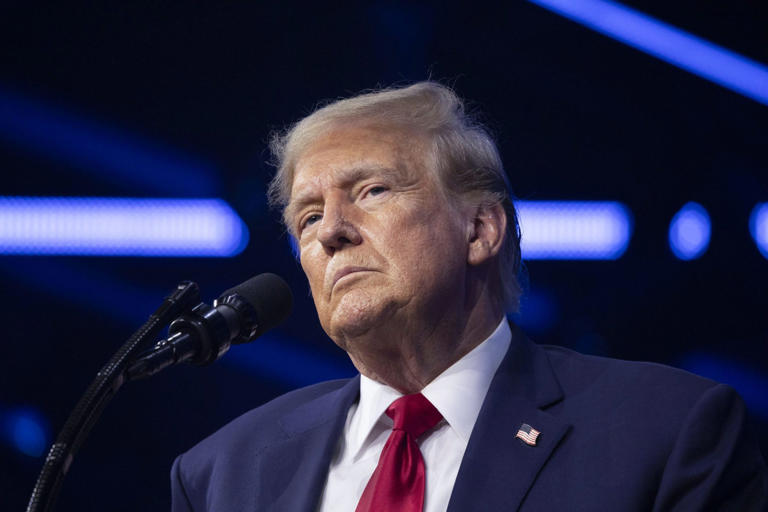Jeffrey Sonnefeld’s observations from the Yale School of Management provide a detailed perspective on the evolving relationship between Fortune 100 CEOs and political candidates, particularly in the lead-up to the 2024 election. According to Sonnefeld, who heads Yale’s Chief Executive Leadership Institute, the landscape for corporate political contributions has shifted significantly, especially concerning former President Donald Trump.
Historically, Fortune 100 CEOs have tended to lean towards supporting Republican candidates, exemplified by their substantial backing of Mitt Romney in 2012 and John McCain in 2008. However, Sonnefeld’s latest data reveals a stark departure from this trend during Trump’s tenure. In 2020, only two Fortune 100 CEOs contributed to Trump’s campaign, a notable decline from previous election cycles. This decline underscores what Sonnefeld describes as the “lowest level of corporate support” for a Republican candidate in recent memory.
The shift in CEO sentiment can be attributed to a variety of factors, foremost among them being concerns over Trump’s policies and governance style. According to Sonnefeld, many top CEOs express reservations, if not outright opposition, to Trump’s approach to social and fiscal policies. These sentiments are gleaned from Sonnefeld’s firsthand interactions with corporate leaders, including discussions with influential figures from companies like PepsiCo, Ford, UPS, Verizon, and IBM.
Among the CEOs who are reconsidering their political allegiances, Sonnefeld notes figures like Melinda French Gates and David Ellison, individuals who traditionally align with Republican principles but are now gravitating towards President Biden. This shift reflects broader disillusionment within corporate America regarding Trump’s policies and their potential impacts on economic stability and global trade dynamics.
Contrary to recent media narratives suggesting a resurgence of corporate support for Trump, Sonnefeld underscores that many CEOs view Biden’s policies on economic stability, antitrust measures, and capital gains taxes as more favorable compared to the uncertainties associated with Trump’s proposals, particularly regarding corporate tax cuts and deficit spending.
The implications of these sentiments are profound as they highlight a critical divergence within the Republican Party’s traditional support base. While Trump retains a base of small business support and vocal endorsements from some quarters, Sonnefeld’s insights suggest that the broader corporate community, typically a stalwart of Republican support, is increasingly wary. This sentiment is driven by concerns over economic policy outcomes, inflation risks, and the long-term implications for business operations under different political administrations.
Looking ahead to the 2024 election, Sonnefeld’s analysis suggests that the corporate endorsement landscape may continue to evolve. The decisions made by Fortune 100 CEOs, influenced by their assessment of candidates’ policies and leadership styles, could play a pivotal role in shaping electoral outcomes and influencing broader political discourse on economic policies and corporate governance. As such, understanding these dynamics provides crucial insights into the intersection of business interests and political strategy in contemporary American politics.
